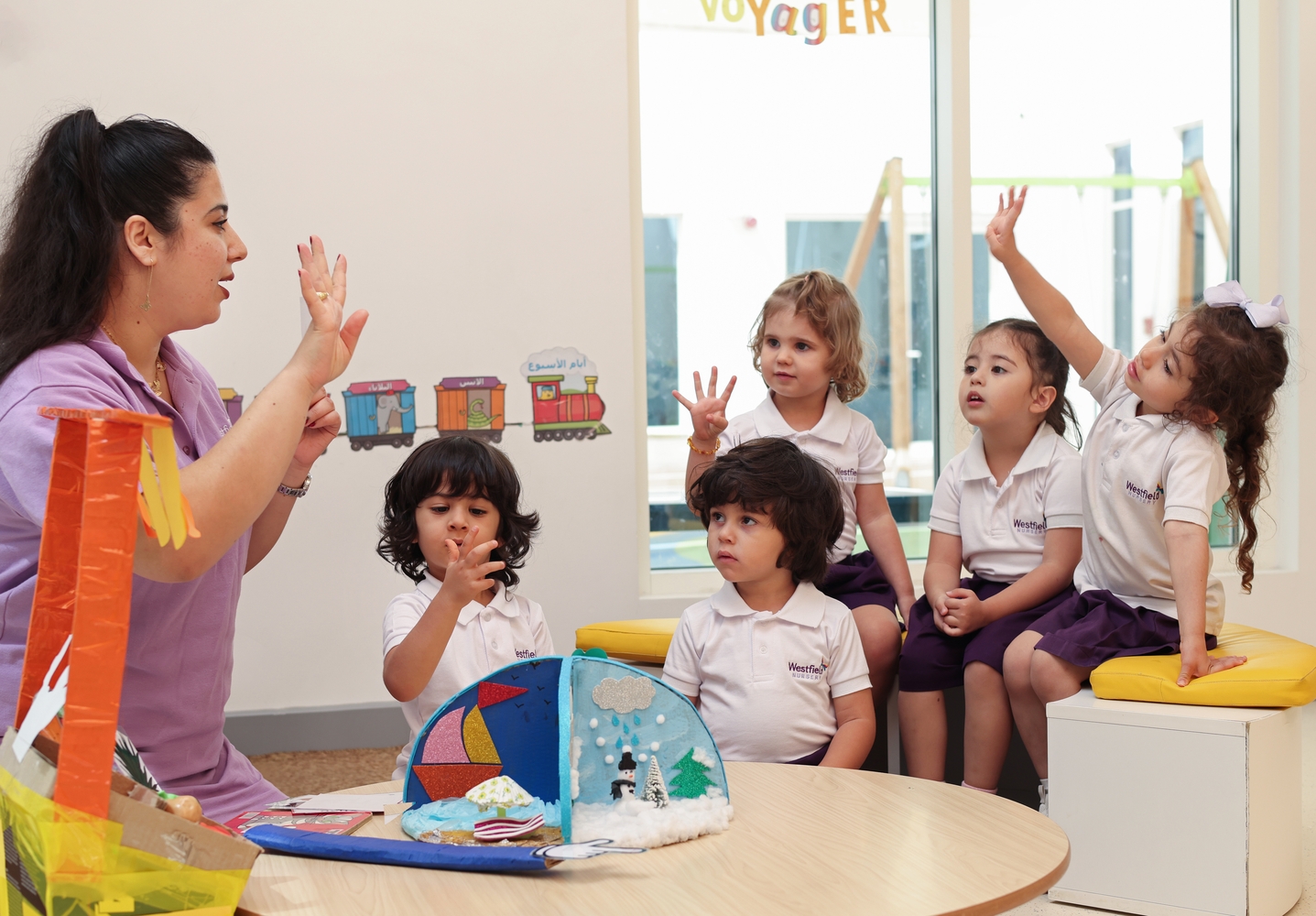Early Years Foundation Stage (EYFS) and EYFS 7 Areas of Learning
Uncover essential insights into the educational framework of Early Years Foundation Stage (EYFS) and EYFS 7 Areas of Learning – British Curriculum nurseries in Dubai. From communication and language development to physical well-being, this listicle delves into the seven crucial areas that shape a child’s early learning journey. Explore how these nurseries, the best nurseries in Dubai, prioritize personal, social, and emotional growth alongside academic progress.
Prepare to delve deeper into each facet of learning that contributes to a holistic educational experience for young learners. Stay tuned as we unveil valuable information on how these nurseries and early learning schools foster a nurturing environment conducive to children’s overall development.
Key Takeaways
- Focus on fostering communication and language skills by engaging children in meaningful conversations and providing opportunities for storytelling.
- Encourage physical development through a variety of activities like outdoor play, dance, and movement exercises to enhance motor skills.
- Support personal, social, and emotional development by creating a nurturing environment that promotes self-confidence, empathy, and relationship-building.
- Promote literacy by incorporating storytelling, reading books, and phonics activities to develop early reading and writing skills.
- Enhance mathematical understanding by introducing concepts through hands-on activities, puzzles, and games to build problem-solving skills.
- Explore the world around us by incorporating nature walks, science experiments, and cultural activities to broaden children’s knowledge and curiosity.
- Foster creativity and self-expression through art, music, role-playing, and sensory experiences to develop imagination and fine motor skills.
1. Communication and Language
 Developing vocabulary is crucial for young learners; it enhances their ability to communicate effectively. Storytelling and conversations play a vital role in expanding children’s word bank, allowing them to express themselves more articulately.
Developing vocabulary is crucial for young learners; it enhances their ability to communicate effectively. Storytelling and conversations play a vital role in expanding children’s word bank, allowing them to express themselves more articulately.
Encouraging kids to voice their thoughts nurtures confidence; speaking and listening activities foster essential communication skills from an early age. Introducing phonics aids in laying a strong foundation for reading proficiency, enabling children to decode words systematically.
Language development thrives through interactive methods like rhymes, songs, and word games; these engaging activities make learning enjoyable while enhancing linguistic abilities. Incorporating such elements into the curriculum not only enriches vocabulary but also cultivates a love for language exploration and holistic learning among youngsters.
2. Physical Development
 Encouraging physical development in young children is crucial for their overall growth and well-being. Through outdoor play and structured activities, nurseries can help children improve both gross and fine motor skills.
Encouraging physical development in young children is crucial for their overall growth and well-being. Through outdoor play and structured activities, nurseries can help children improve both gross and fine motor skills.
- Gross Motor Skills: Outdoor play allows kids to run, jump, climb, and balance, aiding in the development of coordination and strength.
- Fine Motor Skills: Activities like drawing, painting, and threading beads enhance hand-eye coordination and dexterity.
- Healthy Habits: Nurseries play a vital role in promoting healthy habits such as proper hygiene practices, nutritious eating habits, and regular exercise routines.
- Safe Environment: Providing a safe space for exploration enables children to push boundaries safely while building confidence in their physical abilities.
3. Personal, Social, and Emotional Development
 Fostering self-confidence and independence is crucial in early childhood education. Children learn these traits through age-appropriate tasks like tidying up after playtime or dressing themselves.
Fostering self-confidence and independence is crucial in early childhood education. Children learn these traits through age-appropriate tasks like tidying up after playtime or dressing themselves.
Encouraging positive relationships with peers and adults helps children develop social skills. Group activities such as storytelling sessions or collaborative art projects create opportunities for interaction.
Teaching emotional literacy involves guiding children to understand their feelings. By using tools like emotion cards or storytelling about emotions, educators help kids recognize and manage their emotions effectively.
Promoting values like empathy, kindness, and respect lays the groundwork for building strong character traits in young learners. Through role-playing scenarios that emphasize these qualities or discussions on helping others, children internalize the importance of treating others well.
4. Literacy
 Introducing letter recognition and phonics at an early age is crucial for laying the foundation for reading skills in children. By engaging kids in storytime, nurseries can foster a love for books and storytelling that enhances literacy development.
Introducing letter recognition and phonics at an early age is crucial for laying the foundation for reading skills in children. By engaging kids in storytime, nurseries can foster a love for books and storytelling that enhances literacy development.
Creating a print-rich environment within nurseries, complete with labels, signs, and accessible books, significantly contributes to children’s exposure to written language. This exposure plays a vital role in expanding their vocabulary and comprehension abilities.
Supporting emergent writing skills through mark-making activities allows children to practice forming letters and expressing themselves creatively. These activities not only enhance fine motor skills but also encourage communication through written expression.
Incorporating these strategies into the curriculum helps nurture well-rounded literacy skills in young learners while making the learning process enjoyable and interactive. By focusing on letter recognition, phonics, storytelling experiences, print-rich environments, and mark-making activities simultaneously fosters comprehensive literacy development and holistic learning among children.
5. Mathematics
 Mathematics in early education is crucial for laying a strong foundation for future learning. Nurseries following the British curriculum in Dubai focus on various aspects of mathematical development:
Mathematics in early education is crucial for laying a strong foundation for future learning. Nurseries following the British curriculum in Dubai focus on various aspects of mathematical development:
- Numbers and Counting: Children are introduced to numbers through interactive activities, aiding in building a fundamental understanding of numerical concepts.
- Problem-Solving Skills: Puzzles, patterns, and sorting games are utilized to encourage critical thinking and problem-solving abilities from a young age.
- Shapes and Measurements: Exploring shapes, sizes, measurements, and spatial awareness during everyday experiences helps children understand basic geometric concepts.
- Basic Mathematical Operations: Addition and subtraction are taught gradually to develop arithmetic skills progressively.
6. Understanding the World
 Encouraging curiosity about the natural world is vital for young learners. Activities like nature walks, gardening, and observing animals can spark interest in environmental science.
Encouraging curiosity about the natural world is vital for young learners. Activities like nature walks, gardening, and observing animals can spark interest in environmental science.
Exploring cultural diversity through celebrations of various festivals, traditions, and customs helps children appreciate different cultures early on. This exposure fosters acceptance and understanding.
Introducing technology tools at a young age can enhance digital literacy skills significantly. By providing access to age-appropriate devices and programs, nurseries can prepare children for the digital era effectively.
Promoting awareness of environmental issues such as recycling and conservation instills a sense of responsibility towards the planet from an early age. Engaging in activities that support sustainability teaches children valuable lessons about caring for their environment.
7. Expressive Arts and Design
 Encouraging creative expression through art, music, dance, and drama is vital for children’s holistic development. By providing opportunities for imaginative play with props, costumes, and puppets, nurseries foster storytelling skills and creativity in young learners.
Encouraging creative expression through art, music, dance, and drama is vital for children’s holistic development. By providing opportunities for imaginative play with props, costumes, and puppets, nurseries foster storytelling skills and creativity in young learners.
Exploring diverse art mediums like painting, drawing, and sculpting helps children refine their fine motor skills while unleashing their artistic potential. Through these activities, kids learn to express themselves visually and develop a deeper appreciation for various forms of art.
Nurturing a love for cultural expressions at an early age can lead to greater cultural awareness and sensitivity in later life. British curriculum nurseries in Dubai play a crucial role in exposing children to different art forms from around the world.
Closing Thoughts
The seven areas of learning in the EYFS and British curriculum play a crucial role in shaping a child’s educational journey. From communication and language to expressive arts and design, each area contributes uniquely to a child’s holistic development. By focusing on these key areas, nurseries in Dubai can provide a well-rounded educational experience that nurtures children’s skills and abilities.
As parents or educators, understanding the significance of each area of learning empowers us to create enriching environments that support children’s growth. By incorporating activities that target these specific areas, we can enhance children’s learning experiences and set a strong foundation for their future academic success. Let’s continue to prioritize these essential areas of learning to ensure that every child receives the best possible start in their educational journey.
Frequently Asked Questions
What does the “Communication and Language” area of learning focus on?
The “Communication and Language” area emphasizes developing children’s speaking, listening, and understanding skills. It includes activities to enhance vocabulary, communication techniques, and social interactions.
How is Physical Development promoted in nurseries following the British curriculum and EYFS framework?
Physical Development involves encouraging children to be active, develop coordination skills, and understand the importance of a healthy lifestyle. Nursery programs incorporate various physical activities like outdoor play, dance, and games to support this aspect of learning.
What aspects are covered under Personal, Social, and Emotional Development in EYFS nurseries?
Personal, Social, and Emotional Development concentrates on building self-confidence, managing feelings positively, and fostering relationships with peers/teachers/family members. This area helps children develop empathy towards others while recognizing their own emotions.
Understanding the 7 Areas of Learning in EYFS
Why is Literacy important for young learners in British Curriculum nurseries?
Literacy skills form the foundation for reading and writing abilities as children grow. In nursery settings following the British curriculum (EYFS), literacy activities such as storytelling sessions or letter recognition games help nurture early language development essential for future academic success.
How do Mathematics activities benefit children in EYFS nurseries?
Mathematics activities at an early age lay down fundamental concepts like counting numbers or recognizing shapes crucial for cognitive development. These activities promote problem-solving abilities while enhancing logical thinking skills essential for academic progress later on.
What is included within Understanding the World area of learning in nursery education aligned with the British curriculum?
Understanding the World introduces young learners to various cultures, environments & technologies worldwide through interactive experiences. Activities may include exploring nature elements or discussing different festivals globally to broaden children’s knowledge & curiosity about the world around them.
Imagine your child’s eyes lighting up as they climb towering castles, craft magical stories, and discover endless joy at our sun-drenched nurseries. See the EYFS curriculum come alive firsthand! Book your tour today and unlock their boundless potential: https://www.atticuseducation.ae/nurseries/
[ratemypost]





